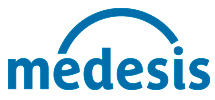AUDIO EDITION : the Montpellier biotech publishes very interesting results with its lipidic microemulsion of Lithium, NP03.

A preclinical study published by the team of Professor Claudio Cuello, MgGill University Montreal shows that NP03 is efficient as a disease modifying drug for Alzheimer disease, using a model of transgenic rats.
Medesis NP03 drug could accordingly rapidly reach the market. For this purpose, 10M€ will have to be raised, a step that could be a mere formality given the interest of industries and international Capital Ventures.
Jean-Claude Maurel, CEO of Medesis Pharma, gives detailed information on the development of NP03 and the next steps up.
Listen to the interview here.
Intracellular delivery of Lithium without toxic effects
Lithium is known as the reference treatment for bipolar disorders, but also potentially to treat neurodegenerative diseases. However, its very narrow therapeutic window strongly limits its use. Notably, Lithium treatment is often accompanied by significant or even very severe renal side effects in elderly patients with neurodegenerative diseases.
The Medesis nano-sized reverse (water-in-oil) microemulsions NP03 allows the delivery of Lithium doses 400 times lower than, but as therapeutically efficient as, those under current use, and without toxicity.
Medesis’s microemulsions and their therapeutic agent cargo are transported in the blood by HDL-type lipoproteins and delivered directly into the cells, and especially to neurons by lipoprotein receptors.
Stopping degeneration and remanufacturing neurons
In this study, NP03 has been tested on the Alzheimer transgenic rat model, McGill-R-Thy1-APP, generated in Dr Cuello’s Lab. The formulation delivered into the brain microdoses of Lithium that affected the symptoms of the disease. Indeed, NP03 rescued key initiating components of AD pathology, including inactivating kinase GSK-3β, reducing BACE1 expression and activity, and reducing ß-amyloid levels. Moreover, NP03 enhanced the activity of CRTC1, a regulatory protein that stimulates synaptic plasticity genes and stimulated hippocampal neurogenesis, i.e. the generation of new neurons from neural stem cells. As a result of these biological changes, NP03 rescued learning, cognitive and memory deficits in the treated animals. These results suggest that NP03 is a disease-modifying treatment of Alzheimer disease.
“A concrete hope to modify Alzheimer’s disease evolution? “
“The technological discoveries of Medesis constitute a breakthrough in the approach of Alzheimer’s disease treatment. We have validated on a preclinical animal model our NP03 formulation which appears to be a disease-modifying treatment of Alzheimer’s disease. Indeed, NP03 stops the neural degradation and rescues the loss of memory, but also improves the psychiatric symptoms “said Dr. Jean-Claude Maurel, founder and CEO of Medesis Pharma, and adding,” The clinical study is ready to start in Canada on 150 patients who are entering psychosis and will be treated for 3 months. The therapeutic and economic value is obvious because these patients will generate significant social economic costs. We look forward to raising funds to launch this promising clinical study ”.
Lithium: a recognized efficacy against neurodegenerative disorders
Lithium-based drug have been marketed for 40 years in bipolar disorders and have demonstrated activity in the treatment of neurodegenerative diseases. Medesis has validated in animal models NP03 a lithium nano-sized emulsion formulation that allows direct intracellular delivery of lithium without toxicity, by dividing the usual therapeutic dose by a 400-fold.
Moreover, in a recent study (published in August 2017 in the journal “JAMA Psychiatry“) including 733,653 people worldwide, researchers examined the frequency of dementia in different regions as a function of the lithium content of drinking water. The results are clear: it is in the regions where Lithium level is higher that the impact of dementia is lower. The study shows that the frequency of pathology decreases when populations are exposed to more than 15 mg Lithium / liter of water.
The preventive role of lithium in the set-up of dementia is thus demonstrated.
About Medesis Pharma:
Medesis Pharma has a patented technology in the field of drug delivery, based on nano-sized reverse (water-in-oil) emulsions used to directly deliver active ingredients in the body at the intracellular level, through a “Trojan horse” mechanism.
This innovative drug delivery technology has several major applications in the development of drugs including metal ions, small molecules, peptides and siRNAs:
- to treat neurodegenerative diseases such as Alzheimer’s disease and Huntington’s disease (see: Pouladi et al. 2012; see Arribat et al 2014).
- to treat prion disease (see: Lehmann et al 2014)
- to protect populations from contamination after nuclear, civil or military accidents. A drinkable formulation particularly suitable for pregnant women and young children has been designed for Cesium decorporation (See : Lavaud et al. 2017). Other formulations have been developed for the decorporation of Plutonium, as well as for radioprotection following an irradiation, for instance near a nuclear reactor.
In addition, a research program is underway in oncology (personalized treatment of resistant cancers), radiotherapy (protection of healthy tissues) and development of therapeutic peptides (Huntington’s disease).
The company has its headquarters in Montpellier-Baillargues (France) and a subsidiary in Montreal (Canada).
